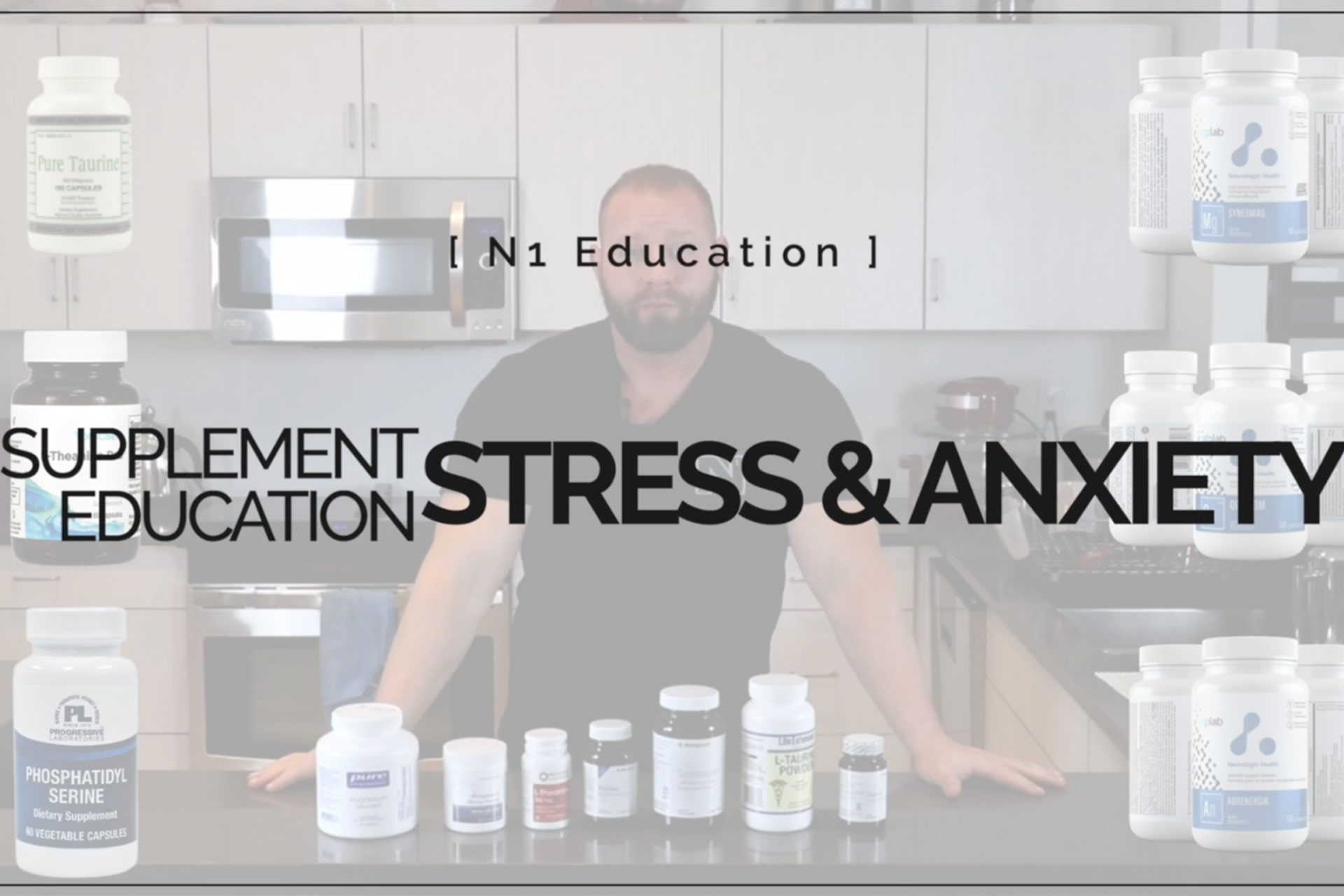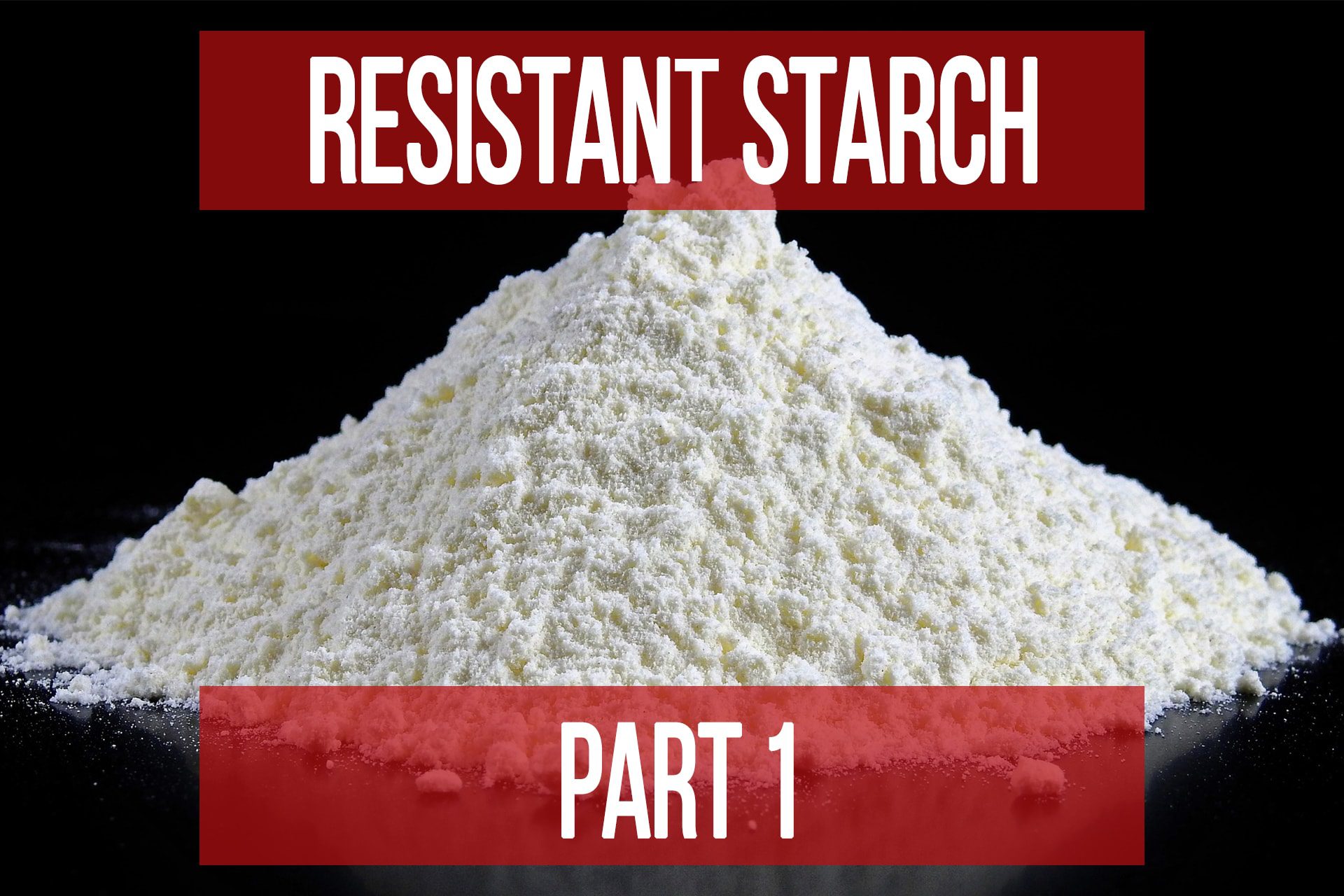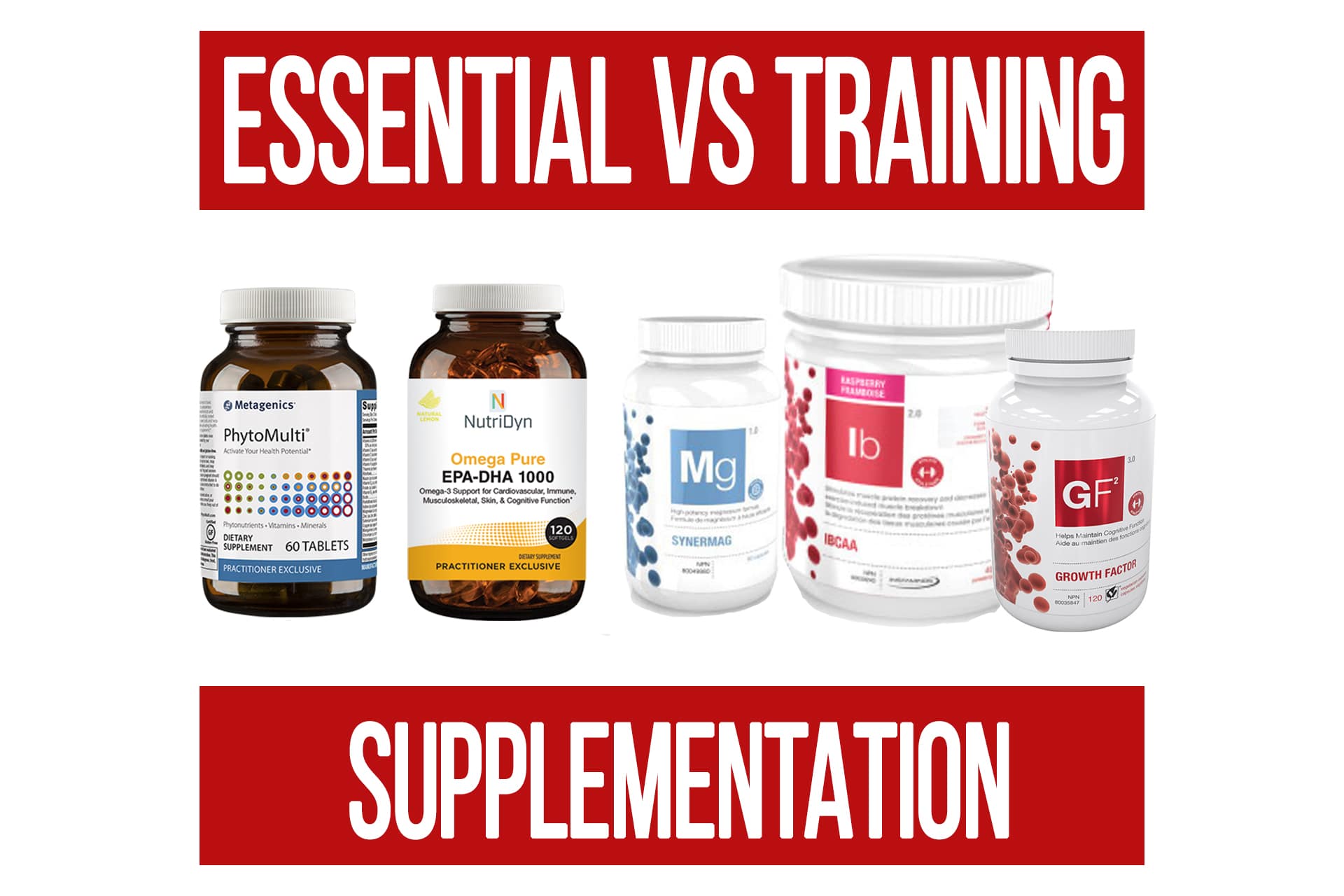Troubleshooting Digestion: Basic Tips & Action Steps
n1 training
Troubleshooting Digestion: Basic Steps & Tips
Gut health can be a very complex topic, but here are some basics you can consider if you are experiencing issues. If you are experiencing serious problems with digestion, this is not a substitute for working with a licensed professional, but it can give you some starting points to potentially rule out some things.
There are many symptoms of potentially sub-optimal gut health. They can include excessive gas, bloating, constipation, diarrhea, or irregular bowel movements to name a few.
Considerations
Let’s begin with the basic considerations that may be contributing to, or even be the cause of, digestive issues. Troubleshooting digestion begins with assessing the environment.
- Training
For someone who is training regularly, one of the first things to consider is the type of training you’re doing. Excessive volume or pushing certain training stimuli without proper nutrition can potentially create or exacerbate gut issues.
Learning when to appropriately switch training stimuli, periodize your training, and match your nutrition will do wonders. We’ve seen this time and time again working with clients. Start with the simpler foundational things before trying to come up with a complex (and often expensive) protocol to target symptoms.
- Life Stress
Mental stress is still stress and can significantly impact your hormonal balance. If you’re consistently experiencing stress, whether mental or physical, hormones like cortisol are being elevated. Perhaps not to the same level as during an intense training session (but maybe), but a chronic elevation of stress hormones begins to cause other hormonal imbalances which can have an effect on both your gut health and body composition.
I’m not going to try and prescribe a DIY protocol or attempt to “solve” this, but there are some action items that you can take into consideration to help address daily stress. Meditation is a commonly suggested aid, as well as gratitude journaling, but that is not right for everyone. Even trying to take a little extra time during the day to get a mental break and do something purely for enjoyment is a step in the right direction. The first major step is identifying and acknowledging what the stressors are. Then look for ways to mitigate and manage them.
Sometimes supplementation can be a good aid for short-term assistance. Check out the video linked at the bottom for more on that.
- Food Quality
I’m not talking about organic vs GMO or anything like that here (that’s another topic altogether). In this context, “quality” comes down to simplifying the process of getting the food from its source to your stomach. Avoiding highly processed foods with lots of additives like preservatives, artificial sweeteners, partially hydrogenated fats (trans fats), etc can be very positive for your gut health overall. Sometimes it is one or multiple of these things that can give people digestive issues, or at least irritate existing ones.
I list artificial sweeteners here not because of a concern for impact on insulin (as existing evidence doesn’t support that very well), but because they can feed certain gut bacteria and increase their growth which may not be a good thing in all cases. If there is already an imbalance in gut flora, artificial sweeteners can sometimes make it worse.
Choose single ingredient foods for the most part and sticking with getting fresh whenever possible can be a good start to troubleshooting digestion and working on improving gut health.
- Supplement Quality
With supplements, quality is of utmost importance. Third-party testing (to make sure you’re actually getting what you’re paying for) and a GMP Certified facility producing them are two of the first things to look for when choosing which brands to buy.
Fillers or poor quality products (like rancid fish oil) can wreak havoc on your digestive tract either acutely or cumulatively. Just because a company is popular, doesn’t mean they’re high quality.
Making sure you’re using top-quality products is extremely important because you do tend to get what you pay for. This is why we prefer using practitioner-grade supplements that are certified and tested consistently like Nutri-Dyn and ATP Lab.
Action Steps
Ok, now that we’ve covered some of your initial considerations, let’s get to some basic steps to help troubleshoot potential gut issues.
Step 1: Assess Your Training Program
There is a reason this was consideration #1. If your gut issues just recently started during your current training plan, there is a good chance that it was a contributing factor.
Most often this occurs when doing some type of metabolic program that is either more than your body is ready for (too much volume of the stimulus) or the nutrition is not matched properly.
Step 2: Food Journal & Elimination Diet
If you experience digestive issues at certain times of day or after particular meals, keeping a food journal for a few days can be very handy. Just write down your food sources for each meal and jot down a note how you feel immediately after, 1 hour after, and 2 hours after. If there is a pattern, then you can easily narrow down the list of suspects if the cause is a particular food or group of foods.
If you’re not able to determine whether a particular food is the issue, an elimination diet can be the simplest way to go about troubleshooting digestion. Sometimes sensitivities can take hours to manifest in gas or bloating, so a food journal might not be as helpful if the cause was from let’s say Meal 1 but you don’t have any issues until after Meal 2 or 3.
An elimination diet is relatively easy to do (logistically speaking).
First, you swap out all of your current foods for ones that you don’t normally eat. You can do this either categorically (such as with only your protein sources or only your carb sources for example) or all at once, which can be more challenging if you eat a wide variety of foods. If you have no idea what food(s) might be an issue, it’s recommended to swap them all out.
For example if you usually eat chicken, beef, and turkey for your protein you could switch to fish, deer, and eggs as your protein sources.
Stick with the “new” sources for about 10-14 days and see if your digestive issues change. If they improve, you can slowly start reintroducing your “old” sources. Try to only add 1-2 back every 1-2 days and stay conscious of how you feel. If you add something back and begin experiencing issues again, you’ve likely found one of your potential irritants.
It can take a while to go through this process, but it is much less expensive than getting food panel testing done to check for sensitivities, intolerance, and allergies.
Step 3: Supplementation Assistance
These are just some basics for supporting gut health when troubleshooting digestion. As mentioned before, this is not intended to diagnose or treat digestive issues as there are too wide a range of potential causes and protocols. If you’re experiencing serious issues I highly recommend seeking out a licensed practitioner.
Make sure you are getting adequate fiber in your diet. Fiber binds to things like toxins and excess bile salts to help excrete them. Some types of fiber also feed the bacteria in your digestive tract, which in turn create compounds like short-chain-fatty-acids (SCFAs) that have other health benefits.
Fish oil provides valuable omega-3s like EPA which can help improve cellular health and insulin sensitivity. EPA also aids in the body’s ability to regulate inflammation. Again, this is one supplement where quality is key.
Glutamine can aid in healing of the intestinal tract when taken in larger doses. It coats the walls of the intestines and can allow the lining to repair if it has been damaged or inflamed. We’re talking 10-50g doses on an empty stomach for this effect, depending on the person.
The first two are staples that most people can benefit from daily for overall health. Glutamine can have other uses for peri-workout as well since it also aids the kidneys in buffering acid and clearing metabolic waste. Glutamine and other items are covered in more detail in the article Essential VS Training Specific Supplementation.
Summary:
Start with the basics when troubleshooting digestion issues. There are many times when very simple interventions are needed to see improvements, such as changing your training, rather than some complex supplement protocol.
Begin with the biggest factors and then work your way through the process of elimination to narrow down potential causes. If you are experiencing serious issues or are having difficulty improving after trying the basics, talk to an experienced licensed professional.
Gut health can be a very complex topic, but here are some basics you can consider if you are experiencing issues. If you are experiencing serious problems with digestion, this is not a substitute for working with a licensed professional, but it can give you some starting points to potentially rule out some things.
There are many symptoms of potentially sub-optimal gut health. They can include excessive gas, bloating, constipation, diarrhea, or irregular bowel movements to name a few.
Considerations
Let’s begin with the basic considerations that may be contributing to, or even be the cause of, digestive issues.
1. Training
For someone who is training regularly, one of the first things to consider is the type of training you’re doing. Excessive volume or pushing certain training stimuli without proper nutrition can potentially create or exacerbate gut issues.
Learning when to appropriately switch training stimuli, periodize your training, and match your nutrition will do wonders. We’ve seen this time and time again working with clients. Start with the simpler foundational things before trying to come up with a complex (and often expensive) protocol to target symptoms.
2. Life Stress
Mental stress is still stress and can significantly impact your hormonal balance. If you’re consistently experiencing stress, whether mental or physical, hormones like cortisol are being elevated. Perhaps not to the same level as during an intense training session (but maybe), but a chronic elevation of stress hormones begins to cause other hormonal imbalances which can have an effect on both your gut health and body composition.
I’m not going to try and prescribe a DIY protocol or attempt to “solve” this, but there are some action items that you can take into consideration to help address daily stress. Meditation is a commonly suggested aid, as well as gratitude journaling, but that is not right for everyone. Even trying to take a little extra time during the day to get a mental break and do something purely for enjoyment is a step in the right direction. The first major step is identifying and acknowledging what the stressors are. Then look for ways to mitigate and manage them.
Sometimes supplementation can be a good aid for short-term assistance. Check out the video linked at the bottom for more on that.
3. Food Quality
I’m not talking about organic vs GMO or anything like that here (that’s another topic altogether). In this context, “quality” comes down to simplifying the process of getting the food from its source to your stomach. Avoiding highly processed foods with lots of additives like preservatives, artificial sweeteners, partially hydrogenated fats (trans fats), etc can be very positive for your gut health overall. Sometimes it is one or multiple of these things that can give people digestive issues, or at least irritate existing ones.
I list artificial sweeteners here not because of a concern for impact on insulin (as existing evidence doesn’t support that very well), but because they can feed certain gut bacteria and increase their growth which may not be a good thing in all cases. If there is already an imbalance in gut flora, artificial sweeteners can sometimes make it worse.
Choose single ingredient foods for the most part and sticking with getting fresh whenever possible can be a good start to troubleshooting and working on improving gut health.
4. Supplement Quality
With supplements, quality is of utmost importance. Third-party testing (to make sure you’re actually getting what you’re paying for) and a GMP Certified facility producing them are two of the first things to look for when choosing which brands to buy.
Fillers or poor quality products (like rancid fish oil) can wreak havoc on your digestive tract either acutely or cumulatively. Just because a company is popular, doesn’t mean they’re high quality.
Making sure you’re using top-quality products is extremely important because you do tend to get what you pay for. This is why we prefer using practitioner-grade supplements that are certified and tested consistently like Nutri-Dyn and ATP Lab.
Action Steps
Ok, now that we’ve covered some of your initial considerations, let’s get to some basic steps to help troubleshoot potential gut issues.
Step 1: Assess Your Training Program
There is a reason this was consideration #1. If your gut issues just recently started during your current training plan, there is a good chance that it was a contributing factor.
Most often this occurs when doing some type of metabolic program that is either more than your body is ready for (too much volume of the stimulus) or the nutrition is not matched properly.
Step 2: Food Journal & Elimination Diet
If you experience digestive issues at certain times of day or after particular meals, keeping a food journal for a few days can be very handy. Just write down your food sources for each meal and jot down a note how you feel immediately after, 1 hour after, and 2 hours after. If there is a pattern, then you can easily narrow down the list of suspects if the cause is a particular food or group of foods.
If you’re not able to determine whether a particular food is the issue, an elimination diet can be the simplest way to determine what the culprit is. Sometimes sensitivities can take hours to manifest in gas or bloating, so a food journal might not be as helpful if the cause was from let’s say Meal 1 but you don’t have any issues until after Meal 2 or 3.
An elimination diet is relatively easy to do (logistically speaking).
First, you swap out all of your current foods for ones that you don’t normally eat. You can do this either categorically (such as with only your protein sources or only your carb sources for example) or all at once, which can be more challenging if you eat a wide variety of foods. If you have no idea what food(s) might be an issue, it’s recommended to swap them all out.
For example if you usually eat chicken, beef, and turkey for your protein you could switch to fish, deer, and eggs as your protein sources.
Stick with the “new” sources for about 10-14 days and see if your digestive issues change. If they improve, you can slowly start reintroducing your “old” sources. Try to only add 1-2 back every 1-2 days and stay conscious of how you feel. If you add something back and begin experiencing issues again, you’ve likely found one of your potential irritants.
It can take a while to go through this process, but it is much less expensive than getting food panel testing done to check for sensitivities, intolerance, and allergies.
3. Supplementation Assistance
These are just some basics for supporting gut health. As mentioned before, this is not intended to diagnose or treat digestive issues as there are too wide a range of potential causes and protocols. If you’re experiencing serious issues I highly recommend seeking out a licensed practitioner.
Make sure you are getting adequate fiber in your diet. Fiber binds to things like toxins and excess bile salts to help excrete them. Some types of fiber also feed the bacteria in your digestive tract, which in turn create compounds like short-chain-fatty-acids (SCFAs) that have other health benefits.
Fish oil provides valuable omega-3s like EPA which can help improve cellular health and insulin sensitivity. EPA also aids in the body’s ability to regulate inflammation. Again, this is one supplement where quality is key.
Glutamine can aid in healing of the intestinal tract when taken in larger doses. It coats the walls of the intestines and can allow the lining to repair if it has been damaged or inflamed. We’re talking 10-50g doses on an empty stomach for this effect, depending on the person.
The first two are staples that most people can benefit from daily for overall health. Glutamine can have other uses for peri-workout as well since it also aids the kidneys in buffering acid and clearing metabolic waste. Glutamine and other items are covered in more detail in the article Essential VS Training Specific Supplementation.
Summary
Start with the basics when trying to troubleshoot digestive issues. There are many times when very simple interventions are needed to see improvements, such as changing your training, rather than some complex supplement protocol.
Begin with the biggest factors and then work your way through the process of elimination to narrow down potential causes. If you are experiencing serious issues or are having difficulty improving after trying the basics, talk to an experienced licensed professional.
Have a Question for Us?
Please Log In to Submit Your Question

Popular Pages
Learn & Train With Us
Add N1 Training to your Homescreen!

Please log in to access the menu.



